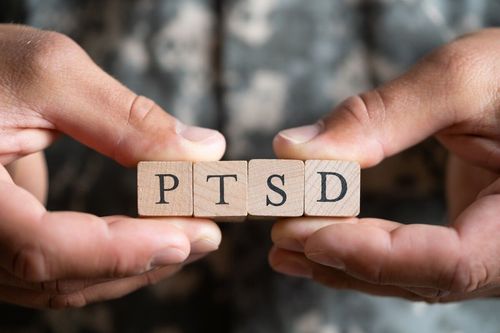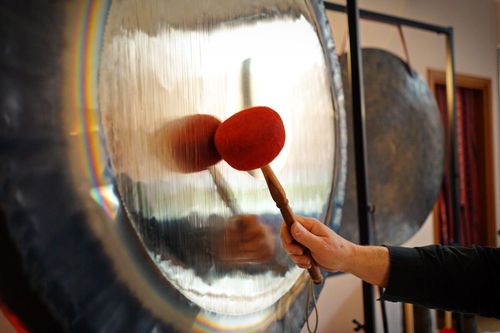Healing a lack of maternal love is a profound process that is different for everyone. Some struggle with the consequences for the rest of their lives, while others find it easier to cope. Maternal love strengthens our basic trust and our ability to accept ourselves. My name is Rico Brunner, and in my practice, I often see that people who have experienced little or no motherly love have greater difficulties accepting themselves, standing up for themselves or perceiving themselves.
If we want to heal this lack of motherly love, we must first find out what was missing. Was it self-acceptance? Affirmation? Love? Trust? Awareness is the first step. After that, it's about giving ourselves what we would have wanted from our mother. This can mean learning to love ourselves, to affirm ourselves or to trust ourselves. However, this path is not a short-term objective. This healing process takes time, especially because maternal love shapes our foundation in the first few years of life - between the ages of two and twelve.
A supportive factor can be a sincere, loving relationship. If we feel safe and loved in a relationship, the wounds of lack of motherly love can heal more quickly. Nevertheless, it remains important to actively work on these issues by ourselves, as true healing comes from within.
Key points relating to a lack of maternal love
- Healing a lack of maternal love is an individual process.
- It takes time to give yourself what was missing from your mother.
A healthy relationship can support the healing process but is not a substitute for working on yourself.
How does lack of maternal love manifest itself and what signs indicate a maternal wound?
A lack of maternal love is particularly evident in emotional areas. People who suffer from this often struggle with low self-esteem, a lack of self-acceptance and a lack of confidence in their own abilities. They often find it difficult to establish emotional stability, which manifests itself in insecurities, self-doubt or problems with their own emotional world.
These are not the only indications of the wound caused by the mother, but also signs pointing to healing. They show us where we can start to work on these deep wounds and restore inner peace. By actively addressing these areas, we can begin to heal our lack of motherly love.
Important aspects
- A lack of maternal love manifests itself in emotional instability, low self-esteem and self-doubt.
- Maternal wounds show where healing is needed and how we can work on ourselves.
What happens when a child does not experience motherly love and what impact does this have on adulthood?
If a child does not experience a mother's love, it can have serious emotional consequences - especially for emotionally sensitive children. They often develop a deep inner feeling of emptiness and struggle with self-acceptance. It becomes even more serious if the child not only receives no motherly love, but is actively rejected by the mother. While rational children are often better able to compensate for such experiences, emotional children are often left with deep emotional wounds.
Such a child will later try to fill this inner hole. Some find positive ways by surrounding themselves with people who are good for them. Others, however, fall into self-destructive behaviors or develop toxic traits because the hurt and overwhelm become too great. A lack of maternal love can cause those affected to lose touch with themselves, which can affect their ability to have healthy relationships.
The good news is that even if motherly love has been missing, the key to healing lies in your own hands. It's about consciously reflecting: "What am I missing because of the lack of motherly love, and how can I give it to myself?" It is important to understand that motherly love is often just a symbol for what we can give ourselves - such as acceptance, love and security.
An interesting aspect is that although some people have objectively experienced a lot of motherly love, they have not been able to absorb it for various reasons. Sometimes they also feel as if they have not received enough motherly love. Ultimately, it is always about coming to terms with your own needs and learning to fulfill them in adulthood.
Important information
- A lack of maternal love affects emotional children particularly badly and can lead to self-doubt or destructive behavior.
- The way to heal is to consciously deal with your own maternal wound.
- Motherly love is often a synonym for what we ourselves feel and can give.
What role does the inner child play in healing the mother's wound?
The inner child does not always play a central role in healing maternal wounds - as surprising as that may sound. It depends on what kind of motherly love was missing. Some forms of lack of motherly love hurt the inner child directly, while other areas such as self-esteem or basic trust are more severely affected. The decisive factor is therefore which of a child's needs were not met by the mother's love.
Motherly love is difficult to define, as it strongly depends on what the child needs individually. The constellation of a child's character, behavior and sensitivity plays a major role. There are cases in which a mother seems to give her child everything, but the nature of her motherly love does not match the child's needs. The child then does not perceive the mother's love because it would have needed a different "language" of love, so to speak.
In addition, maternal love reflects the mother's emotional state. If the mother herself is struggling with inner issues, this can affect her ability to give the kind of love the child needs. Therefore, healing the mother wound often lies in understanding these connections and accepting that as adults we must learn to fulfill our own needs.
Important points:
- The inner child is not always directly affected when motherly love is missing.
- Different forms of maternal love influence different areas such as basic trust or self-esteem.
- Motherly love depends strongly on the character of the child and the emotional state of the mother.
Which methods help to heal the maternal wound and build healthy relationships?
Healing the mother wound begins with taking responsibility. It is important to accept: "I didn't receive motherly love, but it's up to me to change that." Blaming - whether on the mother or others - does not lead to a solution. While recognizing the causes is helpful, the focus should be on how we can heal the wounds.
An effective approach is to record your own injuries in writing: "Which emotional areas are affected?" Only a small part of your energy - around 10% - should be spent on dealing with the injury. The main focus - the remaining 90% - should be on how you can actively contribute to healing.
This process is individual and requires trial and error. One might find that talking to good friends makes them feel motherly love. Others feel healing when cuddling with their partner. Still others find this in activities such as sport, which gives them inner support and stability.
The crucial question is: "What is good for me and helps to heal the wounds caused by a lack of or misunderstood motherly love?" The aim is to find out step by step which methods or relationships can fill these gaps.
Key notes:
- Take responsibility: Healing is in your hands.
- Less focus on the injury, more focus on solutions and positive steps.
- Healing methods are individual: talking, closeness, exercise or other resources can help.
What role does forgiveness play in healing a lack of maternal love and transgenerational hurt?
Forgiveness plays a surprisingly minor role in healing a lack of maternal love and transgenerational wounds. From my more than 25 years of practical experience, I see that the decisive point is often self-forgiveness. Many people are unable to forgive themselves - either because they had to allow the injuries to happen or because they still carry the wounds within them.
Interestingly, the healing of the mother's wound ultimately has little to do with the mother herself. It's more about accepting reality: "My mother couldn't give me the love I needed." This step of acceptance is essential. Instead of blaming the mother, the focus should be on actively taking control of your own healing.
The most efficient way to heal is therefore to focus attention on the solution, not the injury. To ask: "What am I missing? How can I give it to myself today?" is far more helpful than getting lost in the past or in recriminations. Healing maternal wounds means focusing on the here and now and choosing the path that leads to inner peace.
Things to keep in mind
- Self-forgiveness is central to healing the mother wound.
- Healing means accepting reality and not remaining in reproach towards the mother.
- The focus should be on solutions and building self-care, not on the injuries.
Conclusion – How Can You Heal the Absence of Motherly Love and the Mother Wound in a Lasting Way?
Healing the absence of motherly love is a profound and deeply personal process that requires patience and self-responsibility. The focus is not on the past or on the mother herself, but rather on the conscious decision to create in your own life what was once missing.
By turning toward your own needs and giving yourself the love, acceptance, and trust you originally lacked, you can heal deep emotional wounds and build a solid foundation for fulfilling relationships and emotional balance.






